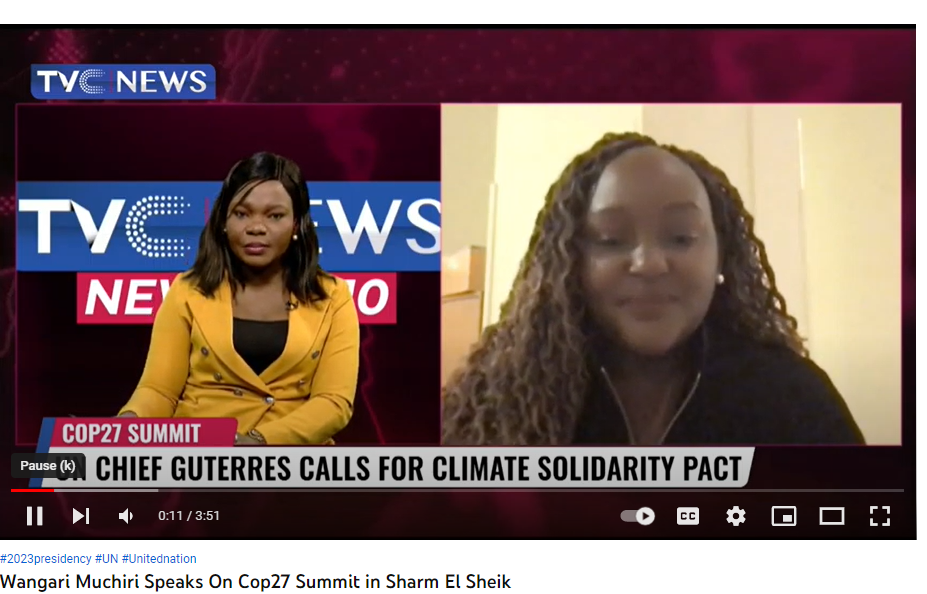Climate Change Expert and Director, Africa Wind Power Global Wind Energy Council, Wangari Mochiri, has called for collaborative effort to help in addressing the ongoing Climate Crisis across the globe.
Wangari Mochiri, who was Speaking to TVC News at 7pm on Monday said Africa despite contributing just 4% of all climate change activities is bearing the brunt of the impact.
She added that World Leaders must be taken into account to meet their commitments made to mitigate the impact of Climate Change especially financial commitments.
According to Her, Talk is no longer enough to address climate change but concrete actions must be taken to mitigate it.
She said the time to take action is now adding that this should be done not minding the crisis the world is facing right now.
Read More Below…
“I think in some regions, like in Africa, humanity is already perishing. I was just outside Nairobi, in the border in Kenya, near Tanzania, and they’re dead zebras all over. Not because there’s been a lion that has gone hunting, but because the drought is so severe there that Kenya is actually losing its flora and fauna because of the drought.
So it’s not a question about whether monitor pressure or not. It is already happening, and we need to take action now.
Indeed. And as it is, African countries have to speak with one voice at the ongoing summit.
I think the major concern in this conference is the lack of the commitments being met. So we know that $100 billion was committed annually. We are yet to see that money. As African countries are developing countries, we’ve only reached $80 billion, and I think the 20 has not yet come.
So at this point, since we’re in a new year, it’s now 120 that we’ve not gotten. So for African countries to be able to really transition, we need to see these commitments that were made in Glasgow and now commitments being made here in Sharm El Sheikh needs to be met.
Absolutely not. I think I just want to bring attention to the fact that the international community at the moment is facing a financial crisis, a debt crisis, an energy crisis crisis, a food crisis, and on top of that, a climate crisis.
So it’s not that the initial targets are now second place. It’s just that there is so much more now that we need to look at. And so it just means we need to all come together, put our heads around it, innovate around it, and come up with climate solutions and implement them.
Talk is not enough at this point. Indeed. And talking about putting our heads together, we know that in the past, wealthy countries made some climate finance and promises repeatedly. But then we also understand that they haven’t exactly been delivering on those promises.
How can they be put to account? How can they finally be held to account? As I said earlier, the talk is not enough. And we’re finding a lot of our world leaders, or our African leaders meeting with world leaders in different forums.
They need to call these world leaders out and say we have not received the money that was committed for us to be able to transition. And so therefore we are not able to meet our climate demands in Africa.
We are suffering more than anyone else in the world where yet we only contributed 4% to climate change. So it really does not make sense. But in addition to that, I think it needs to be a collaborative effort.
So as much as we are calling out the Western nations or the developed nations for not being able to commit to their funds, we also need to collaborate with them. We need to look at the solutions we have in Africa and enable the money to go really to the project on the ground. So I think that’s the best way to do it. I will look forward to the discourse that will take place at the summit”.





